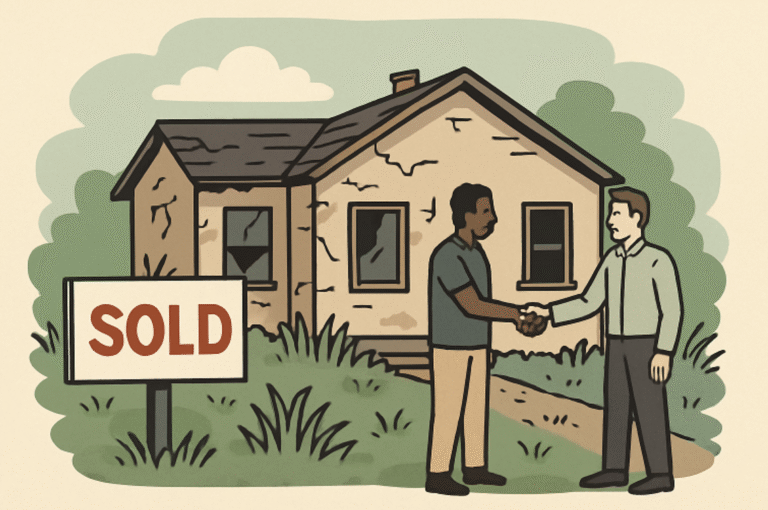Behavioral and Emotional Reasons Dogs Lick Owners
Understanding Canine Affection Through Licking
Dogs lick their owners for a variety of reasons, and many of them are tied to how they show affection and build bonds. It’s not just a random action; it’s a form of communication. Think of it as their way of saying “I like you” or “We’re a team.” Sometimes, a dog might lick you simply because they’re happy to see you, especially after you’ve been away. It’s a greeting, a way to reconnect.
Expressing Love and Bonding
Licking is a primary way dogs show they care. It’s a behavior they learn from puppyhood, where they lick their mother’s face to solicit food and attention. This carries over into their relationships with humans. When your dog licks you, they’re often reinforcing the bond between you. It’s a physical act that strengthens your connection, much like a hug or a cuddle for us. It can be a sign of comfort and security in your presence.
Seeking Attention and Interaction
Sometimes, licking is a learned behavior to get a reaction. If your dog licks you and you immediately pet them or talk to them, they learn that licking gets them what they want: your attention. This can be anything from a good scratch behind the ears to playtime. They might lick you to initiate an activity or just to remind you they’re there and want some interaction. It’s a pretty effective way for them to engage with you.
A Sign of Submission and Respect
In a pack structure, licking can be a sign of deference. A lower-ranking dog might lick a higher-ranking dog as a way to show respect and acknowledge their position. When your dog licks you, especially around the face or mouth area, it can be interpreted as a sign that they see you as the leader and respect your authority. It’s a gentle acknowledgment of your role in their life.
Instinctual and Learned Behaviors
Dogs lick for all sorts of reasons, and some of them are really rooted in their history and how they learn. It’s not always just about saying “I love you,” though that’s part of it. Think about puppies, for instance. When they’re really young, they lick their mother’s face. This is a way for them to ask for food and also to show they’re part of the litter, you know, a sign of belonging.
Puppy Licking for Care
This early behavior is super important. It’s how they communicate their needs to their mom. She’ll often lick them back, which helps clean them and also calms them down. So, that licking isn’t just a cute quirk; it’s a survival instinct.
Mimicking Pack Behavior
Later on, as dogs grow and interact with other dogs, they continue these licking behaviors. It’s a way to show respect and acknowledge the social order within a group. If one dog licks another, it can be a sign of deference, like saying, “You’re in charge.” It’s a pretty neat way they keep the peace in their own way.
Reinforcement of Licking
And then there’s us, the humans. Dogs learn pretty quickly that licking us often gets a positive reaction. We might pet them, talk to them in a happy voice, or even give them a treat. This positive feedback loop makes them want to lick us more. It becomes a learned behavior, tied to getting good things. So, when your dog gives you a good slobbery kiss, it might be a mix of instinct, learned behavior, and genuine affection all rolled into one.
Sensory Exploration and Taste
Dogs explore the world with their mouths and noses, and your skin is a fascinating frontier for them. It’s not just about affection; there are some very practical, sensory reasons behind that wet nose nudging and tongue flicking.
The Appeal of Salty Skin
Ever notice your dog seems particularly interested after you’ve been exercising or just after a shower? That’s likely because your skin has a natural saltiness. Dogs have a much more sensitive palate than we do, and they can detect these subtle tastes. It’s a simple, appealing flavor for them, almost like a treat. This salty residue is a primary draw for many dogs when they lick their owners. It’s a harmless, natural attraction that plays a big role in why they might give you a quick lick.
Investigating New Smells
Your skin is a canvas of scents. Every person, place, and thing you interact with leaves a trace on you, and your dog’s incredible sense of smell picks up on all of it. When your dog licks you, they’re not just tasting; they’re also gathering information. They might be trying to figure out where you’ve been, who you’ve been with, or even what you’ve eaten. It’s like reading a daily newspaper for them, all written in scent and taste.
Exploring Your Emotional State
This one’s a bit more complex, but dogs are really good at picking up on our moods. They can sense changes in our body chemistry, like the release of hormones associated with stress or happiness. Some theories suggest that dogs might lick us as a way to investigate these subtle changes, perhaps even trying to
Managing Excessive Licking
When your dog’s licking goes from a sweet gesture to an overwhelming habit, it’s time to figure out what’s up. Understanding the root cause is the first step to managing excessive licking. Sometimes, it’s just a phase, but other times, it points to something more. We need to look at why they’re doing it so much.
Identifying Underlying Causes
First off, think about what might be triggering the licking. Is it boredom? Are they anxious about something new in the house? Maybe they’re just seeking a bit more attention from you. It’s also worth considering if there’s a physical reason, like a skin irritation or something they ate that makes their mouth feel funny. You’ll want to observe when the licking happens most. Does it happen when you’re about to leave? Or when there’s a lot of noise outside?
Redirecting the Behavior
Once you have an idea of why they’re licking so much, you can start to change it. If it’s boredom, try giving them more toys or going for longer walks. If they’re seeking attention, make sure you’re giving them enough positive attention at other times, like during playtime or training sessions. When they start licking excessively, gently interrupt them and offer a chew toy or a puzzle feeder instead. This gives them something appropriate to focus on.
- Provide mental stimulation: Puzzle toys, scent games, and training sessions can keep their minds busy.
- Increase physical activity: Longer walks, fetch, or dog park visits can help burn off excess energy.
- Establish a routine: Predictable feeding, walking, and playtime schedules can reduce anxiety.
Consulting a Professional in Orillia
If you’ve tried a few things and the licking doesn’t get better, or if you’re just not sure what to do, it’s a good idea to talk to someone who knows dogs well. A professional trainer or a behaviorist in the Orillia area can help you figure out the specific reasons for your dog’s licking and give you personalized advice. They’ve seen a lot and can offer strategies you might not have thought of. Sometimes, a fresh pair of eyes is all you need.
It’s important to be patient with your dog. Changing ingrained behaviors takes time and consistency. Celebrate small victories and don’t get discouraged if progress isn’t immediate.
When Licking Signals a Problem
Sometimes, a dog’s licking goes beyond just a friendly greeting or a bid for attention. It can actually be a sign that something’s not quite right with your furry friend. If you notice your dog licking more than usual and also showing signs like my dog is shaking and acting weird all of a sudden, this could be a red flag for an underlying health or behavioral issue.
Anxiety and Stress Indicators
When dogs feel worried or stressed, they might start licking more than usual. This can be a self-soothing behavior, kind of like how people might fidget or bite their nails when they’re nervous. If your dog suddenly starts licking your hands, arms, or even the furniture a lot, especially during times of change or when something new happens, it could be their way of coping with unease. It’s their way of trying to calm themselves down when they feel overwhelmed.
Compulsive Licking Habits
There are times when licking can become a habit that’s hard to break, even when the initial stressor is gone. This is often called compulsive licking. It’s like a dog getting stuck in a loop. They might lick themselves excessively, or they might fixate on licking you or objects. This isn’t about affection anymore; it’s more about a dog that can’t seem to stop a behavior that’s become automatic. It can sometimes lead to sores or irritation on the dog’s own body if they lick themselves too much.
Seeking Veterinary Advice in Orillia
If you notice a significant increase in your dog’s licking, or if it seems to be happening at odd times or in unusual ways, it’s a good idea to get it checked out. Persistent or excessive licking can sometimes point to underlying medical issues or significant emotional distress. A vet can help figure out if there’s a physical reason for the change in behavior, like pain or an itch they can’t reach, or if it’s more of an emotional or behavioral problem. They can offer guidance on how to help your dog feel more comfortable and less anxious.
The Role of Your Orillia Vet in Diagnosis
When your dog’s licking seems a bit much, or you’re just plain worried, your local orillia vet is the first person to call. They’re not just for shots and check-ups, you know. Vets are trained to look at the whole picture when it comes to your pet’s health, and that includes their behavior.
Ruling Out Medical Issues
Sometimes, excessive licking isn’t about wanting attention or being happy. It can actually be a sign that something’s physically wrong. Your vet will do a thorough check-up to see if there are any underlying medical reasons for the behavior. This might include:
- Skin conditions: Allergies, infections, or parasites can make a dog’s skin itchy and uncomfortable, leading them to lick the area.
- Gastrointestinal problems: Nausea or stomach upset can sometimes manifest as licking, especially licking surfaces or the air.
- Neurological issues: In rare cases, certain brain conditions can affect a dog’s behavior, including compulsive licking.
- Pain: If a dog is in pain, they might lick the area that hurts, or lick you as a way to seek comfort.
They might run blood tests, skin scrapings, or even suggest imaging to get to the bottom of it. It’s all about making sure there isn’t a physical problem causing the licking.
Behavioral Modification Strategies
If your orillia vet determines that the licking isn’t due to a medical problem, they can help you figure out how to manage it. They might suggest:
- Environmental enrichment: Making sure your dog has enough toys, exercise, and mental stimulation can help reduce boredom and anxiety, which are common triggers for licking.
- Training techniques: Positive reinforcement can be used to reward calm behavior and discourage excessive licking. This might involve teaching your dog an alternative behavior when they start to lick too much.
- Routine adjustments: Sometimes, changes to your dog’s daily schedule, like more frequent walks or playtime, can make a big difference.
It’s important to remember that behavior modification takes time and consistency. Don’t get discouraged if you don’t see results immediately. Working closely with your vet will help you find the right approach for your specific dog.
Tailored Support for Your Pet
Every dog is different, and what works for one might not work for another. Your orillia vet understands this. They can help you create a personalized plan based on your dog’s age, breed, personality, and the specific circumstances surrounding the licking behavior. They can also refer you to a veterinary behaviorist if the situation is complex. Getting professional advice is key to helping your dog feel better and improving your relationship.
So, What’s the Deal with All the Licking?
It turns out, when your dog gives you those slobbery kisses, it’s usually not just random. They’re trying to tell you something, whether it’s ‘I love you,’ ‘I’m a bit anxious,’ or even just ‘Hey, feed me!’ Understanding these different reasons helps us connect better with our furry friends. So next time your dog starts licking, take a moment to think about what might be going on. It’s a simple way to strengthen that bond and make sure your dog feels understood. Pretty neat, huh?
Frequently Asked Questions
Why does my dog lick me so much?
Dogs often lick their owners as a way to show they love them and feel close. It’s like a doggy hug or kiss! They might also lick to get your attention, maybe because they want to play or need something. Sometimes, licking can be a sign that they see you as the leader and are showing you respect.
Are there natural reasons why dogs lick?
When dogs are puppies, they lick their moms to ask for food and care. This behavior can stick with them. They might also lick because they see it as normal behavior in their doggy family, or perhaps they learned that licking gets them good things, like praise or a treat.
Does my dog lick me because I taste good?
Dogs have a great sense of smell and taste! Your skin might taste interesting to them, especially if it’s a little salty from sweat. They might also be trying to figure out what you’re doing or how you’re feeling by licking you.
What should I do if my dog licks me constantly?
If your dog is licking way too much, it’s good to figure out why. Is it because they’re bored, stressed, or just want something? Try giving them a toy or starting a game to distract them. If it keeps happening and seems like a big problem, it might be time to talk to a dog expert.
Can excessive licking be a sign of a problem?
Sometimes, lots of licking can mean your dog is feeling worried or anxious. They might also lick a lot if it’s become a habit they can’t stop, kind of like biting your nails. If you notice other signs of stress, like pacing or whining, it’s worth checking with a vet.
How can a vet help with my dog’s licking?
A vet can help figure out if your dog’s licking is due to a health issue, like something bothering their mouth or skin. They can also help you understand if it’s a behavior problem and give you tips on how to help your dog feel calmer and less likely to lick too much.






